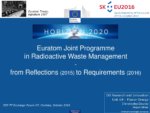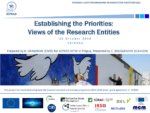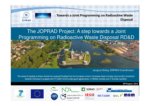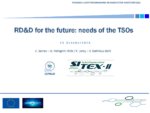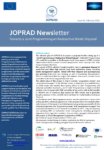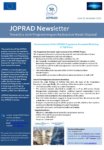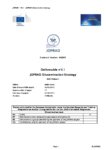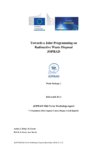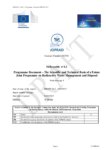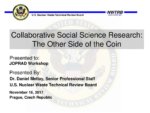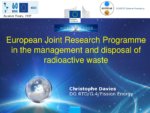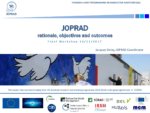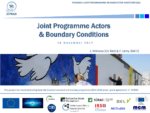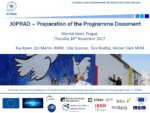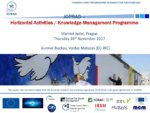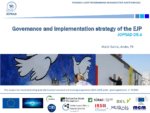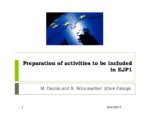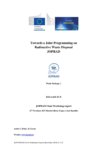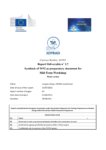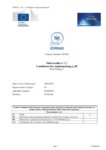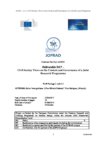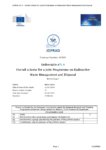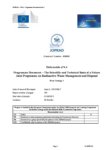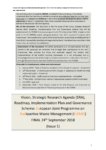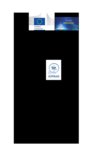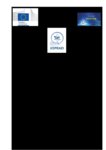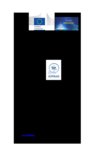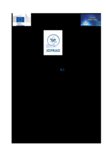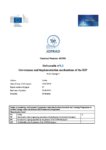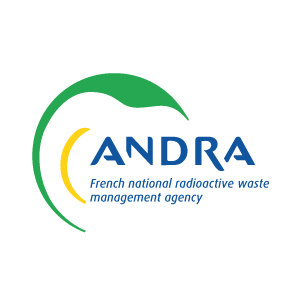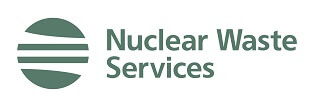JOPRAD: JOint Programming on RADioactive waste disposal
Establishing a European Union funded Joint Programme is a step change in European collaboration towards safe radioactive waste disposal. The goal of the JOPRAD project was to prepare the conditions for the establishment of a Joint Programme on Radioactive Waste Disposal in 2018.
Overview
Project Dates: 1/6/2015 – 30/11/2017
Project Status: Finished
Project Website: www.joprad.eu
The JOPRAD project was a Co-ordination and Support Action funded by the EC through the H2020 Euratom programme. The goal of JOPRAD was to prepare the conditions for the establishment of a Joint Programme on Radioactive Waste Disposal.
Scientific and technical knowledge has been acquired over more than 40 years of geological disposal and has allowed countries to progress towards licensing (Finland, Sweden and France). Research, Development and Demonstration (RD&D) effort at the European level will continue to be necessary throughout the lifecycle of geological repository within the field of radioactive waste management in order to ensure optimisation of management routes and of disposal solutions, and to comply with EU Waste Directive obligations. RD&D will also continue to be compulsory to address evolving regulatory concerns. This RD&D must also be maintained and increased throughout the incremental development, operation and closure of disposal facilities in order to ensure innovation, optimisation, competence maintenance and knowledge management.
Establishing a Joint Programme is a step change in European collaboration towards safe radioactive waste disposal through a credible and sustained science and technology programme fostering mutual understanding and trust, and ensuring societal visibility and transparency of research and development. Such a Joint Programme will bring together, at the European level, those aspects of RD&D activities implemented within national research programmes where synergy is identified. The joint RD&D activities concern geological disposal of spent fuel and other high activity long-lived radioactive waste, including waste management aspects linked with their disposal and other key activities (e.g. Education and Training, as well as Knowledge Management).
JOPRAD was a collaborative project of ten partners funded by the European Commission under the EURATOM Horizon 2020 Framework.
Objective
The ultimate goal of this project was to prepare a proposal for the establishment of a “Joint Programming on Radioactive Waste Disposal”. Such Joint Programming would bring together at the European level, those aspects of R&D activities implemented within national research programmes where synergy from Joint Programming is identified. The aspects of R&D activities brought together concern geological disposal of spent fuel and other high activity long-lived radioactive waste, including waste management aspects linked with their disposal and accompanying key activities (Education and Training, as well as Knowledge Management). The project embraces all research-relevant issues and was not restricted to any particular sub-area. The added value of the project was that it (i) enabled “programme owners” and “programme managers” in the Member States to determine on a qualified basis to what extent the benefits from joining efforts in Joint Programming would outweigh potential drawbacks, and if Joint Programming is implemented, (ii) cross-European joint R&D carried by all key actors with all the benefits in effective use of resources, high-quality top R&D results, and in particular broad acceptance of the scientific-technical basis for implementing Geological Disposal.
At the highest level, the “programme owners” are the ministries in charge of the setting up of the national programmes. In this project, which considered the technical part of the research and development programme associated with the national programme, the “programme owners” and “programme managers” are nationally mandated actors of research (“mandated actors”). They are financing and operating R&D on radioactive waste management, including geological disposal, in their respective countries. There are three categories in this project: (i) Waste Management organisations (“WMOs”), (ii) Technical support organisations (“TSOs”), and (iii) nationally funded Research Entities involved in the R&D of radioactive waste management, including geological disposal (Research Entities).



